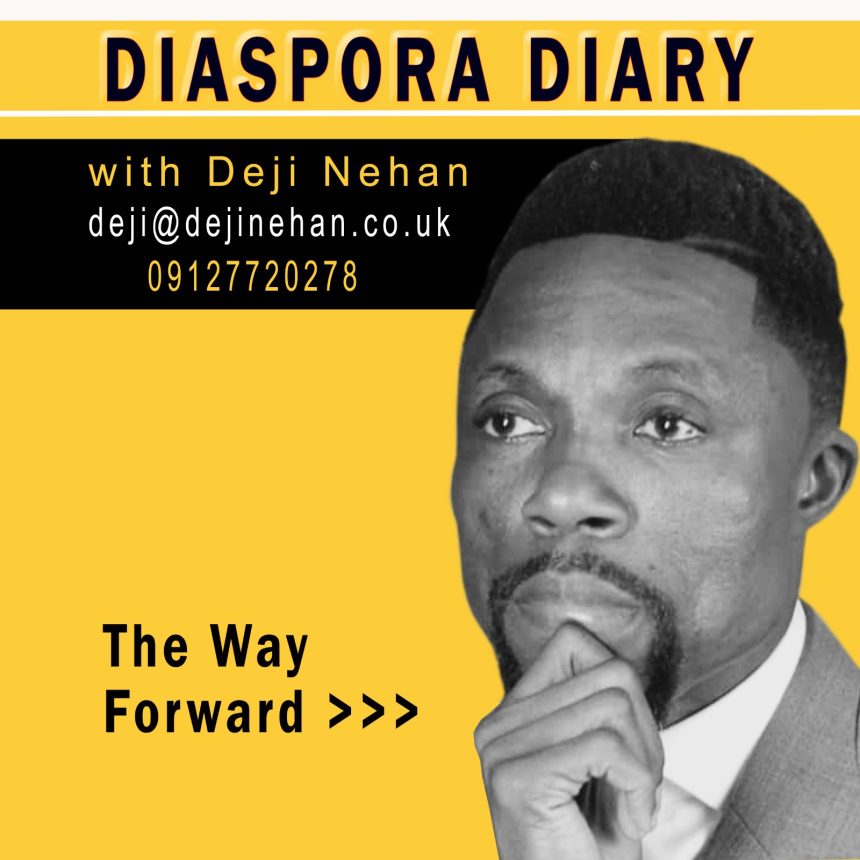By DEJI NEHAN
A Welcome Isn’t Enough
The banners are going up, press statements are rolling out, and Nigeria is preparing to welcome its diaspora under the glowing banner of Motherland 2025. It’s an initiative filled with symbolism, launched by the Ministry of Art, Culture, and the Creative Economy in partnership with Discover Motherland Africa. It promises to celebrate Nigerian culture, attract diaspora tourists, and showcase investment opportunities across the country.
But beneath the surface of excitement lies a deeper question: after the events, the festivals, and the performances, what will truly remain? Are we designing a campaign to entertain and reconnect temporarily, or are we laying the groundwork for long-term systems and shared development? This article explores why Motherland 2025 should not just be a welcome, but a turning point—a mandate for responsibility, innovation, and meaningful return.
What Motherland 2025 Promises—And What’s Still Missing
Motherland 2025 is envisioned as a strategic cultural and economic bridge between Nigeria and its global diaspora. Its pillars are clear: a diaspora city, investment expos, a national cultural showcase, tourism packages, and even an ancestry reconnection initiative. Yet what’s unclear is how this vision will translate into sustainable systems.
Similar programmes have been launched across the continent. Ghana’s “Year of Return” in 2019 generated an estimated $1.9 billion in tourism revenue and attracted celebrities and investors from the U.S. and U.K. But once the headlines faded, critics pointed out the lack of lasting diaspora partnerships or policy reforms. Nigeria’s planners must learn from this: excitement without execution is a missed opportunity.
Rethinking the Diaspora City – Not Just Buildings, But Purpose
One of the standout components of the Motherland 2025 plan is the creation of a “Diaspora City.” It sounds ambitious—a hub where diaspora investors can buy land, live, and collaborate. But ambition is not enough. The real question is: what will this city actually do?
If it’s just luxury real estate packaged for the diaspora elite, then it risks becoming another gated community disconnected from the local economy. But if it is reimagined as an innovation ecosystem—a place that houses creative labs, policy accelerators, enterprise studios, and tourism hubs—then it has the potential to become a new development model.
There are working precedents. In Rwanda, Kigali Innovation City is being built to house universities, research labs, startups, and corporate offices—all in one planned environment. It’s a bold move designed to turn diaspora capital and global partnerships into tangible local transformation. Nigeria can take this a step further by embedding cultural residencies, diaspora business accelerators, and policy experimentation zones inside its own Diaspora City.
UK-based entrepreneur Keji Giwa is an example of what’s possible when diaspora return is matched with vision. He returned to Nigeria and built Giwa Gardens, now home to West Africa’s largest water park—not just a leisure destination, but an infrastructure development that created jobs, improved tourism visibility, and proved that diaspora-led ideas can scale.
READ ALSO: N’West: We’ll secure our forests, enhance surveillance –Tinubu
The Diaspora Can Do More—If There Is a System That Works
There is no shortage of interest among Nigerians in the diaspora to invest, mentor, or return. But for many, the road back is blocked by layers of bureaucracy, insecurity, and mistrust. Without reform, even the most inspired efforts risk dying in the hands of bad systems.
The question is no longer whether the diaspora is willing. The question is: will the system match their sacrifice? Will it match their ambition?
Obi Ozor, a U.S.-trained entrepreneur and founder of Kobo360, offers another real-world model. After returning to Nigeria, he launched a digital logistics platform that now serves multiple West African countries. What made Kobo360 work wasn’t just the tech, but the ecosystem—access to funding, partnerships with regional agencies, and a clear market gap.
Similarly, InstaDeep—a deep tech company founded by Tunisian-French entrepreneur Karim Beguir—grew into one of Africa’s leading AI firms before being acquired by BioNTech for $680 million in 2023. The success wasn’t accidental. Tunisia provided legal clarity on intellectual property, academic support for AI talent, and a culture of public-private partnership. Nigeria must be ready to do the same.
Imagine if Nigeria launched diaspora fellowships that embedded returnees into local industries for a year. Or investment co-ops that allowed diaspora groups to fund real estate, health, or agriculture projects together, spreading both risk and reward. These are not far-fetched ideas—they are strategies already working elsewhere.
Government Must Keep Its Side of the Deal
If the diaspora is being asked to build, then the government must clear the land—legally, politically, and structurally. Right now, too many returnees face red tape, lack of protection, and shifting policies. That must change.
Nigeria should back the Motherland 2025 vision with concrete reforms. That means establishing a Diaspora Advisory Council to co-create the future of the programme, publishing diaspora investment data annually, and enforcing accountability for institutions meant to support returnees. The success of this initiative will depend not just on excitement, but on trust.
Don’t Just Visit. Build Something.
Motherland 2025 could be a turning point in the story of diaspora and development. But only if it’s treated not as a party, but as a platform. Behind the photos and red carpets, there must be policies, projects, and partnerships that endure.
The question is no longer whether the diaspora is willing. The question is: will the system match their sacrifice? Will it match their ambition?
Because in the end, the motherland does not just need visitors; it needs visionaries and nation builders.
And those builders? They may already be packing their bags. But the real journey begins when they unpack with purpose.














